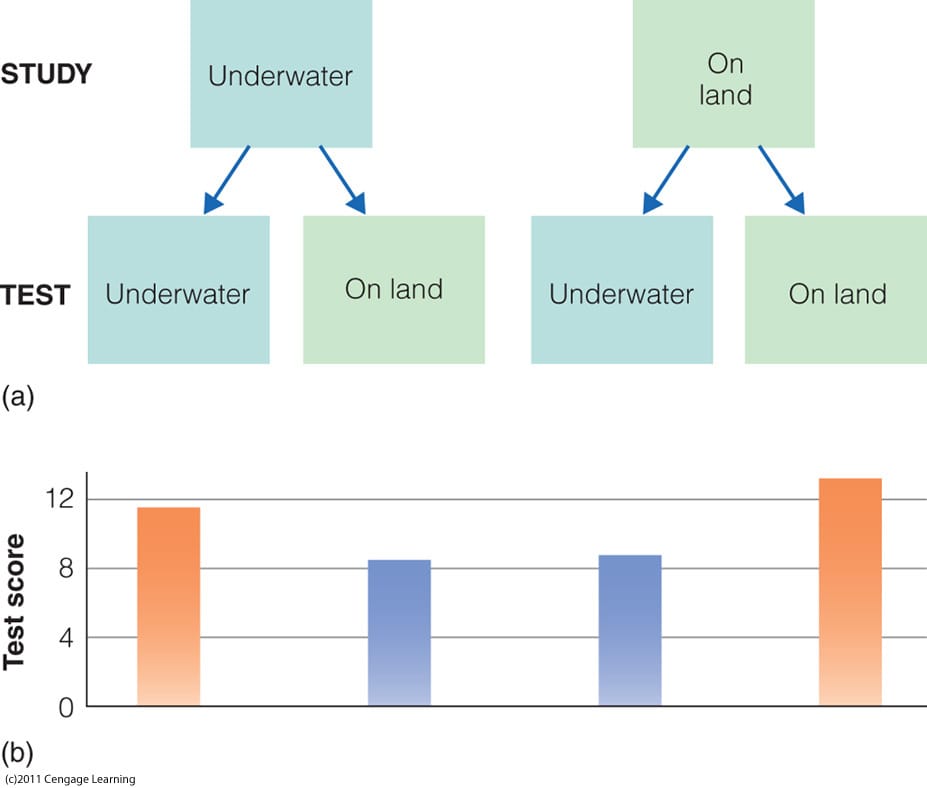- ATP – All Things Psychology
- Posts
- 🔋ATP#8: How to Actually Remember What You Learn
🔋ATP#8: How to Actually Remember What You Learn
The most effective study techniques according to science
Welcome to ATP—All Things Psychology, a newsletter that brings bite-sized research pieces from Psychology and Neuroscience straight to your inbox, with one goal: To help you leverage science to improve your life.
Not a subscriber yet? Subscribe here so you don’t miss the next one!
I teach a few classes on memory to first-year psychology undergrads.
One of the questions I always ask them is: Who relies on reading and re-reading the material as an exam prep technique?
And it’s the same each year: The majority of students in the room raise their hands.
We then spend some time looking at how to study more effectively because the harsh truth is that (re)reading the material is as effective as throwing spaghetti at the wall and hoping something sticks.
Many of my students managed to get through school using this ineffective technique, but it will hardly work in university, where the demands are much higher.
Let’s take a look at how to improve learning!
7 tips for effective studying
1. Elaborate on what you learn.
The idea is to integrate your new knowledge into your existing knowledge.
If you can form connections between pieces of knowledge, they're no longer isolated but rather part of the bigger picture. By elaborating, you also engage with the new knowledge more actively.
Elaboration improves your retention.
Ask yourself:
What does this mean to me? Can I relate this to something in my life or about myself?
How does this relate to other things I know?
How could I create a mental image of this?
2. Test yourself often.
Testing is one of the most effective techniques for learning. It should be a regular learning strategy, not just something you do in an exam.
So:
Create questions about what you’re learning and answer them.
Try to explain what you’re learning to another person.
Find practice questions in textbooks or online. Or use AI to generate questions.
3. Organize the information.
Organizing helps you see the bigger picture and how pieces of knowledge are related.
Elaborate mind maps or schemes.
Organize information by topics and subtopics.
It reduces mental load and improves your retention.
4. Beware of illusions of learning.
I started this newsletter with my students’ favorite study strategy: Reading and rereading.
If you re-read information, it will feel easy and fluent, and that’s why people love it.
Re-reading tricks you into thinking that you know it all.
But: It feels easy because your brain already knows it, not because you could reproduce it.
Avoid this trap.
5. Consider your inner state and surroundings as you learn.
The whole learning situation matters.
Learning is more than acquiring content. During learning, your brain also stores related information, such as where you are, how you feel, etc.
There’s a super cool study from 1975 in which divers had to learn a word list either on land or underwater and reproduce it the next day, on land or underwater. Results showed that those who changed the context (i.e., studied underwater but reproduced the list on land or vice versa) remembered fewer words than those who maintained the context (i.e., they studied and reproduced the words in the same context, either on land or underwater).

The study shows: If your learning situation and the situation where you must access the knowledge later are similar, you remember everything better.
So: Make your learning situation and the situation where you must reproduce the contents similar.
Another option is to switch between different learning contexts for your study sessions, so the knowledge becomes more independent of your surroundings.
6. Space out your learning sessions.
What’s better, a continuous 8-hour learning session or 4 sessions of 2 hours each?
According to science, it’s the second one: spacing out learning sessions helps you remember the content better.
It’s called the spacing effect.
Instead of one long study session, divide your studies into several shorter sessions to learn more effectively.
7. Leverage sleep.
Memories stabilize during sleep.
Sleep is where most of your memory consolidation happens, as discussed in last week’s newsletter.
Sleep is an essential tool for learning.
So:
Make sleep your top priority.
Don't sacrifice sleep to have more study time.
Move your study sessions to late afternoons and evenings, or do a recap before bed if you study earlier in the day. What you study in the hours before bed gets prioritized for consolidation overnight.
Wrapping up
Not all learning techniques are effective.
In fact, the most popular technique (rereading) is super ineffective.
But leveraging the science-backed tips outlined in this newsletter, you can make new knowledge stick.
Until next time!
Best wishes,
Patricia (Dr. Schmidt) from creatorschmidt.com.